Month: March 2020
CARGO OPERATIONS ARE KEY TO KEEP THE PRODUCTIVE SECTOR RUNNING AND TO IMPORT MEDICINES AND MEDICAL SUPPLIES
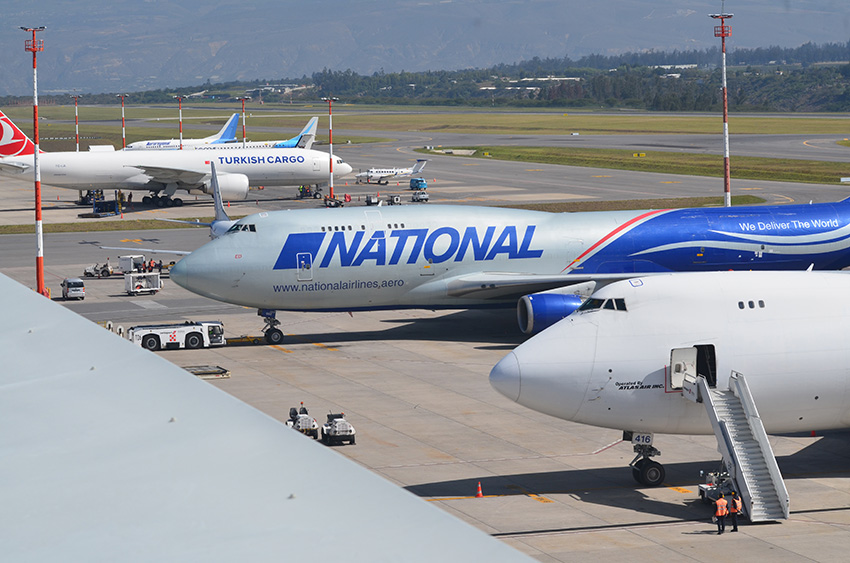
A total 69 cargo flights have left the Quito International Airport between the 18th and 29th of March, transporting 2,500 metric tons of export cargo to the world. Restrictions imposed on air transport do not affect international cargo flights, however, due to the global health emergency caused by the Coronavirus pandemic, international markets have decreased their demand. Similarly, cargo imports continue to develop to supply the country with the products and supplies necessary for various activities.
“Keeping the cargo operations open allows the country’s producing sector active, specifically the one related to flower production. The airport is the main point of entry and exit of goods for Quito and its area of influence, therefore, it is essential to continue with the cargo operation, fulfilling the commitment made to the Mayor of Quito, Jorge Yunda, to continue supporting the productive activities of the city,” says Andrew O’Brian, President and CEO of Corporación Quiport.
The entire air cargo logistics chain is still operational, starting in Tabacarcen, a logistics center that houses 70% of the air cargo consolidation, as well as the four palletizers that work in the export cargo terminal: Novacargo, Pertrally, Aerosan and Servipalet . Cargo airlines continue to arrive at the airport, although some flights were suspended due to lower demand.
All the actors in the logistics chain have taken all the necessary protection measures to prevent infection among their collaborators, equipping them with the necessary personal protection equipment, and at the same time continuing with their daily operations.
Santiago Gómez de la Torre, General Manager of Tabacarcen, explains that air transport fulfills a role that in many cases can be vital. “International cargo flights mainly transport medicines and medical supplies, protective equipment, industrial products, as well as household items,” he reports.
Regarding the consolidation of export cargo, many flower orders have been canceled, which directly affects the consolidators, but even so trucks continue to deliver flowers at the international cargo terminal for export, although not in a reduced quantity. This causes the facilities to be working at a third of their capacity.
Meanwhile, Eduardo Emanuele, General Manager of Pertrally, one of the four palletizers that operate in the cargo terminal of the Quito airport, considers that “all of us actors are making great coordinated efforts to maintain the export activity.”
“With Quiport’s leadership, we have all pitched in, although the impact is serious. We estimate a reduction of 35% of what we normally transport. Around these dates we’d normally be bustling with activity as part of the high season for Mother’s Day, which, under present circumstances, will not occur this year as it has in previous years,” said Eduardo Emanuele, who calls for continued efforts to achieve the success of the export operation that is an essential part of the country’s economy.
Elizabeth Suárez, General Manager of PrimeAir, a representative of two cargo airlines operating in Quito, explains that, despite the drop in demand – mainly due to the fall in the European market – Middle Eastern, Asian, Australian and Russian markets mantain a semblance of normalcy. Meanwhile, in the United States, the drop in demand has began to be felt during the past week.
“The importance of keeping air cargo operations active is fundamental since we are not only involved with the movement of flowers and fruit, which by the way is an industry that has been hit hard by this crisis and must be fully supported, but also in the transport medicines and medical supplies that can help us be best prepared for this situation. Furthermore, it allows us to maintain important connectivity between Ecuador and the world,” remarked Elizabeth Suárez.
“It is a difficult time for everyone, however, we have a great responsibility to the country. All of us involved in the activity of air cargo transportation are very well aware of this fact. We are very grateful for the commitment, will and effort of the companies involved and their work teams, who are allowing us not to stop,” concludes Andrew O’Brian.
QUITO INTERNATIONAL AIRPORT WILL PROVIDE THE FACILITIES REQUIRED BY THE STATE FOR THE REPATRIATION PROTOCOL
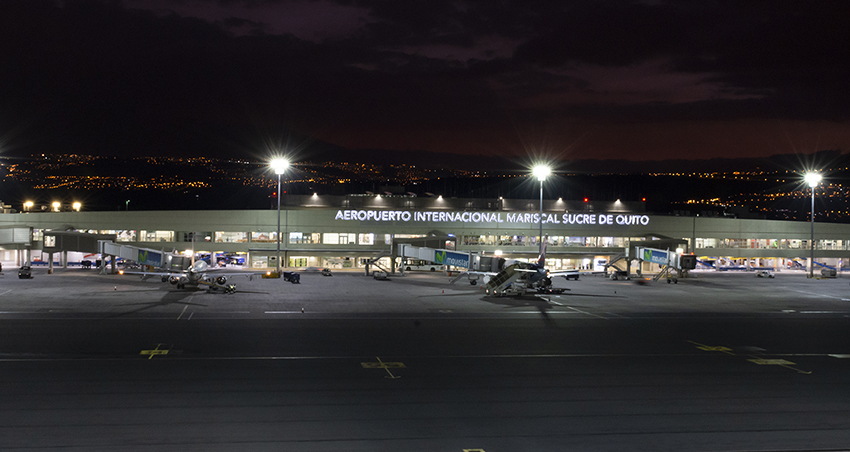
The National Government has approved a protocol for the repatriation for minors who are overseas without their parents, pregnant women, people with disabilities and the elderly. The document establishes specific responsibilities for the various government entities that have jurisdiction in this situation, such as the Ministry of Foreign Affairs, the Ministry of Public Health, the Ministry of Government and the General Directorate of Civil Aviation.
Yesterday, March 24, the Municipality of Quito also approved this protocol, making it clear that the aforementioned government entities must guarantee compliance with all sanitary control and security measures when these passengers enter the country in the event of use Quito International Airport as an entry point. Corporación Quiport, as it has been doing, is ready to work with the Government and will provide all the facilities so that State entities can fulfill their responsibilities under this protocol.
QUITO AIRPORT KEEPS ITS OPERATIONS OPEN AND MANAGES HUMANITARIAN FLIGHTS
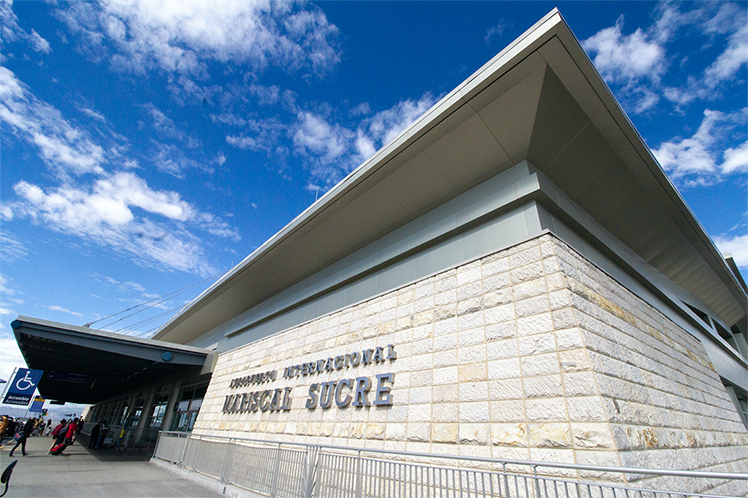
Operations at the Mariscal Sucre International Airport in Quito remain open, with the restrictions established by the Government of Ecuador and the Municipality of Quito to stop the spread of Covid-19. Humanitarian flights to repatriate foreigners from Ecuador to Europe are being carried out normally from the Quito airport.
Corporación Quiport, the company in charge of the operation and management of the Quito International Airport, are working at the highest level with the Ministry of Government, the Ministry of Transport and Public Works, the Ministry of Health, the General Directorate of Civil Aviation, the Municipality of Quito and the Metropolitan Public Company of Airport Services to guarantee the operation of humanitarian flights and that the measures applied at the Quito airport comply with international regulations.
Operations at Quito airport are carried out in compliance with governmental and municipal regulations, framed in international regulations:
- The arrival of international passengers, whether foreign or Ecuadorian, is suspended.
- International departure flights are authorized. Some airlines are making international departure flights from Ecuador for which they bring empty planes – a ferry operation – which will then depart with their passengers from the Quito airport.
- Domestic flights are suspended throughout the country. The General Directorate of Civil Aviation, in coordination with the Municipality of Quito, may, in an exceptional manner, authorize national flights for justified situations.
- International cargo flights are authorized.
- Military or air ambulance flights are authorized.
- The application of these measures is valid until April 5.
Corporación Quiport has been carrying out a disinfection process of the entire passenger terminal, that is, national and international arrivals and departures areas, as well as public halls. For this effect, we are using a broad spectrum virucidal that allows immediate disinfection.
We recommend foreign citizens who wish to leave the country by air to consult with the airlines that operate in the city about the travel options they offer, or to contact the embassies of their countries, who can guide and provide support.
Andrew O’Brian
President and CEO
14 INTERNATIONAL FLIGHTS HAVE DEPARTED FROM THE QUITO AIRPORT UNTIL SUNDAY, MARCH 22
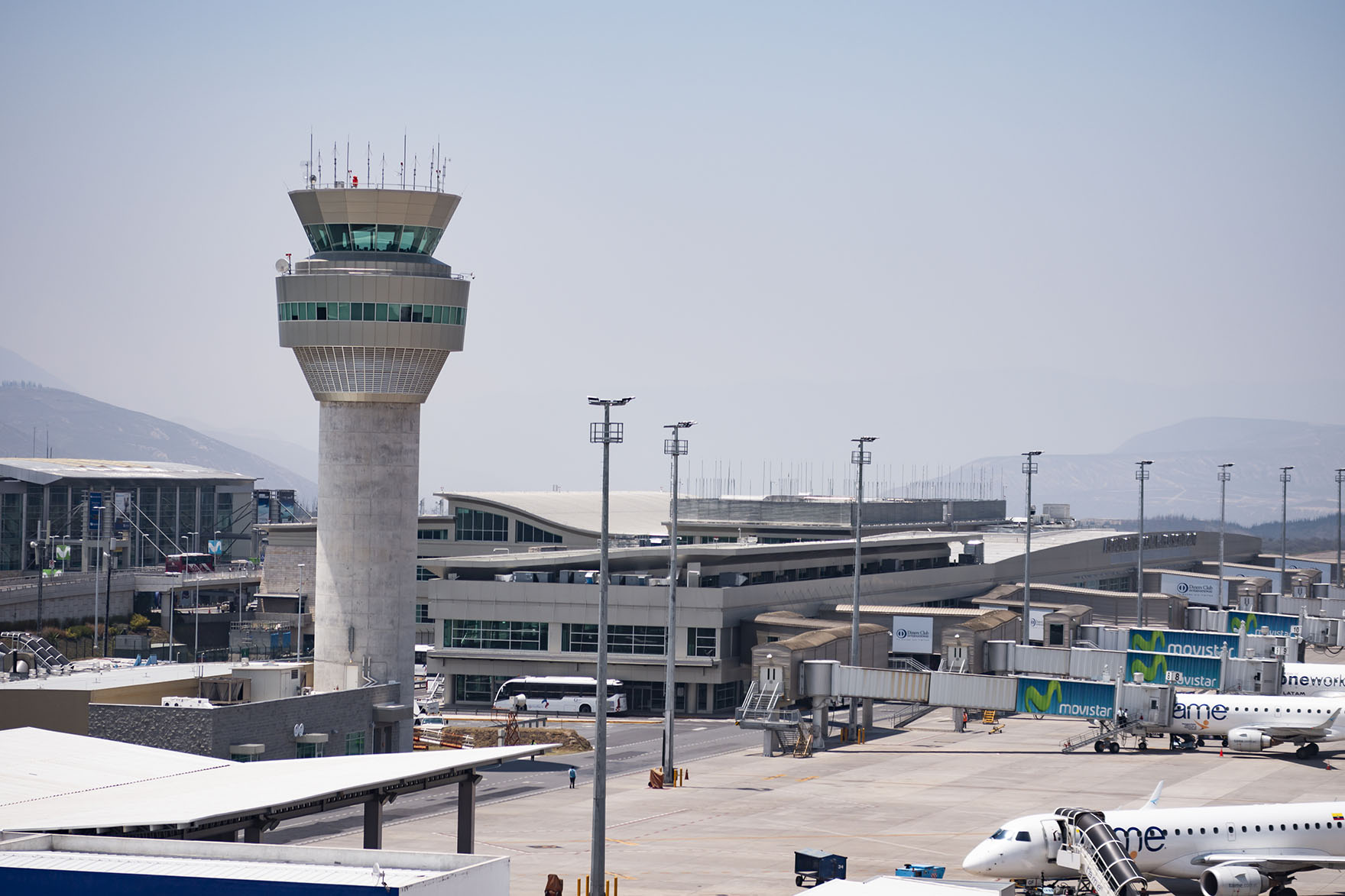
As of Tuesday, March 17 to Sunday, March 22, a total of 14 humanitarian flights carrying passengers abroad will have departed from the Quito International Airport, allowing the repatriation of nearly three thousand people, most of them European citizens or residents.
Including this evening’s airlifts, KLM will have carried out 4 humanitarian flights (to Amsterdam); Air France: 3 (Paris); Iberia: 2 (Madrid); Avianca: 2 (Bogota); Copa: 1 (Panama City); Aeroregional: 1 (Toluca, Mexico) and Tame: 1 (Fort Lauderdale, United States). A second flight from Tame is scheduled to depart for Fort Lauderdale in the early hours of Monday, March 23.
Passenger operations are interrupted, with the exception of international passenger departure flights that are permitted for humanitarian reasons such as repatriation. These aircraft arrive at the Quito airport empty, which is known in the industry as a “ferry operation”, they board passengers at the airport terminal and leave the city. It is important to remember that Air cargo operations are allowed.
Andrew O’Brian, President and CEO of Quiport, explained that it is vitally important to keep the airport open and allow humanitarian flights. “There are people at the airport working diligently so that foreigners who need to travel to their countries can do so. We are taking all security measures for everyone who is working at the airport. I am deeply grateful for everyone’s work, because they are doing it in good spirits, understanding that there is a very powerful human factor behind: allowing foreigners in Ecuador to get back home.”
Airline crews that, in compliance with international regulations on the maximum time that they can pilot an aircraft, must stay overnight in the country to rest, the Ecuadorian General Directorate of Civil Aviation issued a security protocol that is observed and complied with by all the airmen. The protocol includes medical checks and measures of social distancing.
Due to the drastic decrease in flights, some 50 people from the airlines that operate humanitarian flights currently work in the passenger terminal, plus aviation security in charge of the Metropolitan Public Company of Airport Services, Migration, General Directorate of Civil Aviation, private security, cleaning and Quiport Operations personnel. All the people who must continue working in the passenger terminal have the appropriate protections such as masks, gloves and hand sanitizer available at all times.
QUITO AIRPORT OPERATES WITHIN GOVERNMENTAL AND MUNICIPAL PROVISIONS
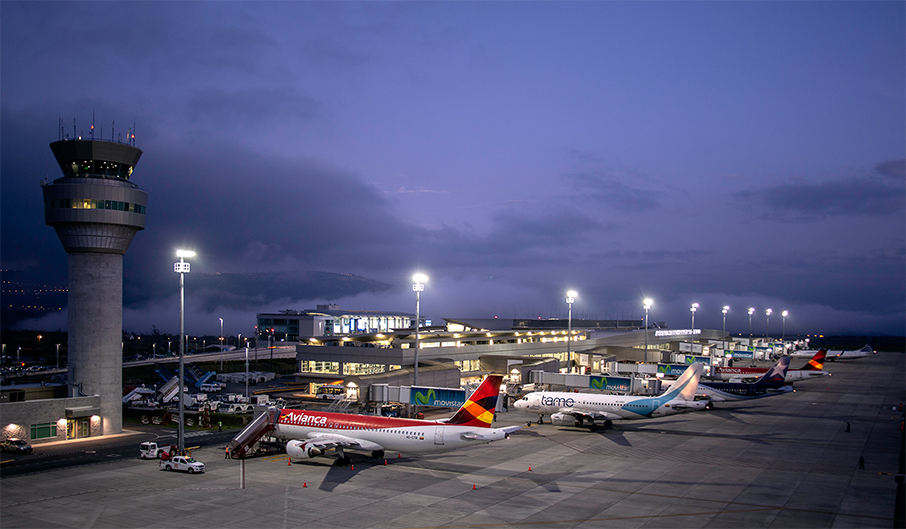
The Municipality of the Metropolitan District of Quito, using its powers to oversee the city’s airport service and in accordance with the decrees of the National Government, confirmed that international arrivals at the Mariscal Sucre International Airport of flights with passengers whose final or intermediate destination is the city of Quito will not be allowed.
The city authority also emphasizes that international cargo flights, aircraft that arrive without passengers to Quito to carry passengers abroad, as well as military and air ambulance flights, contemplated in Ministerial Agreement 003 of the Ministry of Transportation and Public Works, will be permitted to operate.
Corporación Quiport, the concessionaire in charge of the administration and operation of Quito’s airport, reiterates its predisposition to abide by all state, national and local guidelines, framed in the law and in the powers of each establishment.
According to the Municipality, these are policies that focus on favoring the wellbeing of the general population.
We ask citizens to follow health recommendations, avoid listening to and replicating rumors and false information, and to report through official channels.
